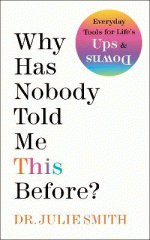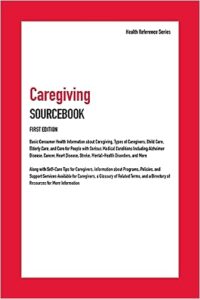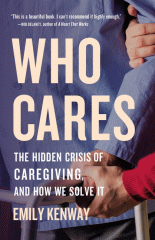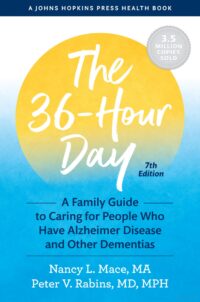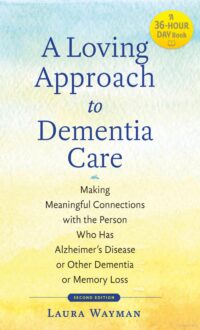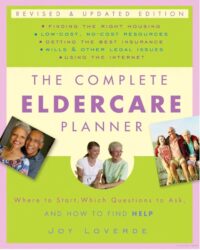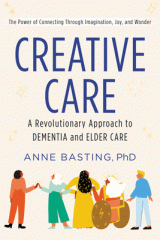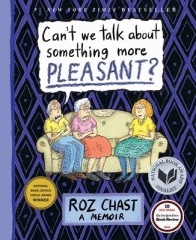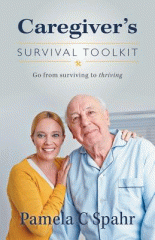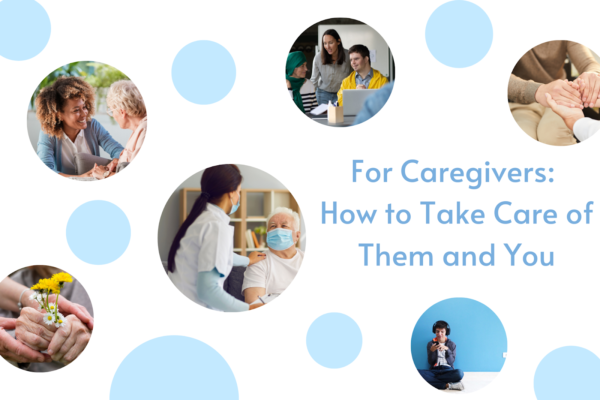
Caring for and about others is a very taxing job. It is especially easy to only think of them and never of yourself. But it is necessary to remember that YOU are important, too, and that you can best help them when you are at your best! Here are some great local resources and the best materials CCPL has to offer to help make your caregiving process easier!
Suggested Web sites
Recommended Books
Being a caregiver can be rewarding but demanding work-and more than 40 million adult children find themselves experiencing the double duty of caring for their elders as they try to carry on a life of their own. The mission of this book is to help caregivers figure out how to look after aging loved ones, provide for other family members, and attend to their own careers without losing themselves in the process.
In this supportive, reassuring, and practical guide, Doctor Alexis addresses the most pressing concerns, including such issues as how to:
- Get all family members to pitch in
- Let go of feelings of guilt
- Avoid conflict with an aging loved one
- Foster independence in the elderly
- Balance the demands on one’s own time and resources
— Provided by publisher.
Filled with secrets from a therapist’s toolkit, Why Has Nobody Told Me This Before teaches you how to fortify and maintain your mental health, even in the most trying of times. Dr Julie Smith’s expert advice and powerful coping techniques will help you stay resilient, whether you want to manage anxiety, deal with criticism, cope with depression, build self-confidence, find motivation, or learn to forgive yourself. Why Has Nobody Told Me This Before tackles everyday issues and offers practical solutions in bite-sized, easy-to-digest entries which make it easy to quickly find specific information and guidance.
Your mental well-being is just as important as your physical well-being. Packed with proven strategies, Dr. Julie’s empathetic guide offers a deeper understanding of how your mind works and gives you the insights and help you need to nurture your mental health every day. Wise and practical, Why Has Nobody Told Me This Before might just change your life.
— Provided by publisher.
Provides basic consumer health information about caregiving, types of caregivers, child care, elderly care, and care for people with serious medical conditions, along with self-care tips for caregivers and information about the support services available for caregivers. Includes index, glossary of related terms, and other resources.
— Provided by publisher.
When Emily Kenway became the primary caregiver for her terminally ill mother, her life was changed forever. Although she was lonely, she was far from alone: millions of caregivers all around the world are silently suffering from poverty, isolation, and burnout. Saving their nations’ economies billions by providing nonprofessional care, these people—primarily women—remain largely ignored by politicians, in part because the demands of care itself keep them from effectively advocating for their needs. In Who Cares, Kenway brings the caregiving crisis into the light. Blending expert research with insights from her own experience, Kenway shows us that building a world that cares for its caregivers requires us to fundamentally reimagine the role of care in our society, bringing it from the margins to the center of our collective life.
Powerful and deeply reported, Who Cares is an essential read for anyone who has ever cared for, or will receive care from, another person—which is to say, for everyone.
— Provided by publisher.
Through five editions, The 36-Hour Day has been an essential resource for families who love and care for people with Alzheimer’s disease. Whether a person has Alzheimer’s disease or another form of dementia, he or she will face a host of problems. The 36-Hour Day will help family members and caregivers address these challenges and simultaneously cope with their own emotions and needs. Featuring useful takeaway messages and informed by recent research into the causes of and the search for therapies to prevent or cure dementia, this edition includes new information on: devices to make life simpler and safer for people who have dementia; strategies for delaying behavioral and neuropsychiatric symptoms; changes in Medicare and other health care insurance laws; palliative care, hospice care, durable power of attorney, and guardianship; dementia due to traumatic brain injury; choosing a residential care facility; [and] support groups for caregivers, friends, and family members. The central idea underlying the book–that much can be done to improve the lives of people with dementia and of those caring for them–remains the same. The 36-Hour Day is the definitive dementia care guide.
— Provided by publisher.
Caring for someone with dementia means devotedly and patiently doing a hundred little things each day. Few care providers are trained to meet the challenges of dementia, however―and that is where A Loving Approach to Dementia Care can help. The book offers practical, compassionate advice on overcoming caregiving obstacles and maintaining meaningful relationships with loved ones who have dementia and memory loss.
Laura Wayman’s program of care emphasizes communication, affirmative response, and empowerment―transforming the caregiving process from a burden into a fulfilling journey. Her true stories of caregiving illustrate the principles of this loving approach, giving readers essential tools for connecting with people who have dementia. A practitioner whose strategies have seen great success in thousands of individual homes and facilities across the country, Wayman explains that denying dementia symptoms can make a hard situation worse and shows how understanding the limits and possibilities of the person who has dementia can make all the difference in the world.
In this thoroughly revised edition, Wayman adds fresh caregiving insights, two completely new chapters that explore the dangers of denial by both caregivers and people with memory loss, and the ‘Dementia-Aware Guide to Caregiving’―a quick reference tool for advice on how to respond to specific difficult behaviors. In addition to offering valuable lessons on providing the best possible care, Wayman urges caregivers not to neglect themselves: take care of yourself so you will have physical and mental energy to share with your loved one. Her practical tips will help you balance your own needs with those of your loved one, creating a more positive experience for everyone. A Loving Approach to Dementia Care is an empathetic guide, filled with respect, calm, creativity―and love.
— Provided by publisher
FULLY REVISED AND UPDATED
As our population shifts and ages, the care needs for our elders continue to change and evolve. Today’s generation of family and professional caregivers faces new decisions and challenges, as well as previously unavailable options. This thoroughly revised and updated 2009 edition of The Complete Eldercare Planner equips you with reliable, up-to-the-minute information to help you plan and manage caring for your loved ones.
Comprehensive and detailed, sensitive and realistic, practical and accessible, the 2009 edition provides even more tips on prioritizing and organizing caregiving tasks, balancing work and family responsibilities, and navigating the complex maze of eldercare services. In addition to an expanded index of Internet resources and access to downloadable forms of key documents, you’ll find indispensable checklists, worksheets, step-by-step action plans, lists of questions to ask, low-cost and free alternative resources, and The Document Locator™.
This new edition covers:
- Getting started on creating a long-term care plan
- Finding help, especially if you live far away
- Managing the financial aspects
- Talking to elders about sensitive subjects
- Senior housing–move or stay put?
- Managing medications
- And many other topics of vital interest to anyone caring for an elder
— Provided by publisher.
In Creative Care, Anne Basting lays the groundwork for a widespread transformation in our approach to elder care and uses compelling, touching stories to inspire and guide us all–family, friends, and health professionals–in how to connect and interact with those living with dementia. A MacArthur Genius Grant recipient, Basting tells the story of how she pioneered a radical change in how we interact with our older loved ones. Now used around the world, this proven method has brought light and joy to the lives of elders–and those who care for them. Here, for the first time, everyone can learn these methods. Early in her career, Basting noticed a problem: today’s elderly–especially those experiencing dementia and Alzheimer’s– are often isolated in nursing homes or segregated in elder-care settings, making the final years of life feel lonely and devoid of meaning. To alleviate their sense of aloneness, Basting developed a radical approach that combines methods from the world of theater and improvisation with evidence-based therapies that connect people using their own creativity and imagination. Rooted in twenty-five years of research, these new techniques draw on core creative exercises–such as ‘Yes, and . . .’ and ‘Beautiful Questions.’ This approach fosters storytelling and active listening, allowing elders to freely share ideas and stories without worrying about getting the details ‘correct.’ Basting’s research has shown that these practices stimulate the brain and awaken the imagination to add wonder and awe to patients’ daily lives–and provide them a means of connection, both with the world and with those caring for them. Creative Care promises to bring light and hope to a community that needs it most.
— Provided by publisher.
In her first memoir, Roz Chast brings her signature wit to the topic of aging parents. Spanning the last several years of their lives and told through four-color cartoons, family photos, and documents, and a narrative as rife with laughs as it is with tears, Chast’s memoir is both comfort and comic relief for anyone experiencing the life-altering loss of elderly parents. When it came to her elderly mother and father, Roz held to the practices of denial, avoidance, and distraction. But when Elizabeth Chast climbed a ladder to locate an old souvenir from the ‘crazy closet’–with predictable results–the tools that had served Roz well through her parents’ seventies, eighties, and into their early nineties could no longer be deployed. While the particulars are Chast-ian in their idiosyncrasies–an anxious father who had relied heavily on his wife for stability as he slipped into dementia and a former assistant principal mother whose overbearing personality had sidelined Roz for decades–the themes are universal: adult children accepting a parental role; aging and unstable parents leaving a family home for an institution; dealing with uncomfortable physical intimacies; managing logistics; and hiring strangers to provide the most personal care.
— Provided by publisher.
Don’t struggle!
Ease and Tranquility are your Caregiving Rights.
Insight! Impact! Results!
INSIGHT: Discover the impact of dementia and Alzheimer’s disease on the family unit. Gain insight into what the patient experiences.
IMPACT: Learn effective techniques you can use immediately, whether you are a new family caregiver, a professional caregiver with limited experience, or a ‘veteran’ caregiver with years on the job.
RESULTS: Recognize whether you are getting the results you deserve. Find out how to increase your effectiveness.
DISCOVER:
- Many challenges facing caregivers and families of caregivers.
- How one dementia patient, my husband, sees his world.
- A 6-step process to approach any caregiving situation.
- Ways to ‘read’ your patient’s emotional state to ensure successful outcomes, every day.
- 6 revolutionary new techniques to manage your most difficult caregiving situations.
- How your emotional state affects both you and your patient.
— Provided by publisher


